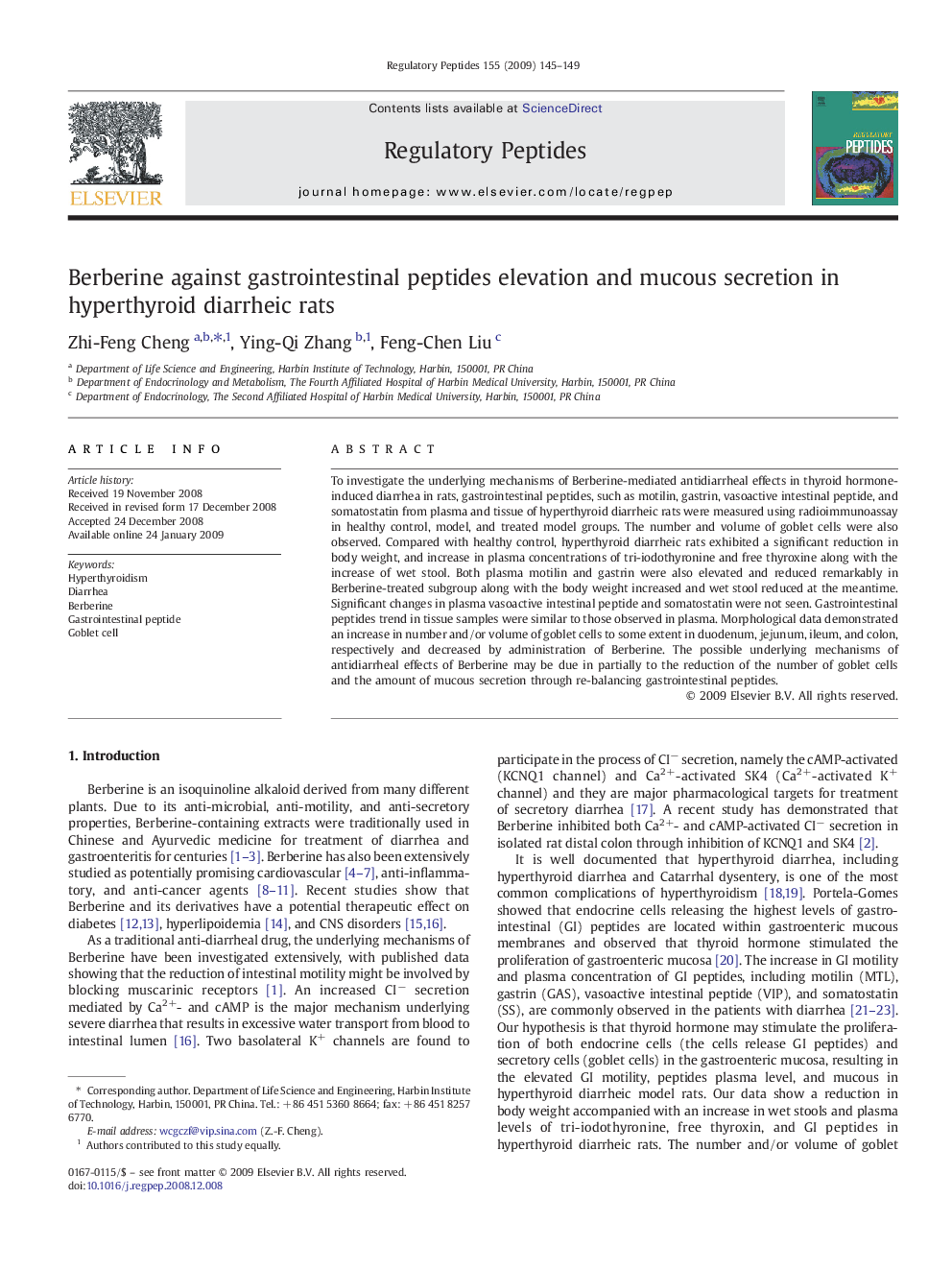| Article ID | Journal | Published Year | Pages | File Type |
|---|---|---|---|---|
| 2023103 | Regulatory Peptides | 2009 | 5 Pages |
To investigate the underlying mechanisms of Berberine-mediated antidiarrheal effects in thyroid hormone-induced diarrhea in rats, gastrointestinal peptides, such as motilin, gastrin, vasoactive intestinal peptide, and somatostatin from plasma and tissue of hyperthyroid diarrheic rats were measured using radioimmunoassay in healthy control, model, and treated model groups. The number and volume of goblet cells were also observed. Compared with healthy control, hyperthyroid diarrheic rats exhibited a significant reduction in body weight, and increase in plasma concentrations of tri-iodothyronine and free thyroxine along with the increase of wet stool. Both plasma motilin and gastrin were also elevated and reduced remarkably in Berberine-treated subgroup along with the body weight increased and wet stool reduced at the meantime. Significant changes in plasma vasoactive intestinal peptide and somatostatin were not seen. Gastrointestinal peptides trend in tissue samples were similar to those observed in plasma. Morphological data demonstrated an increase in number and/or volume of goblet cells to some extent in duodenum, jejunum, ileum, and colon, respectively and decreased by administration of Berberine. The possible underlying mechanisms of antidiarrheal effects of Berberine may be due in partially to the reduction of the number of goblet cells and the amount of mucous secretion through re-balancing gastrointestinal peptides.
